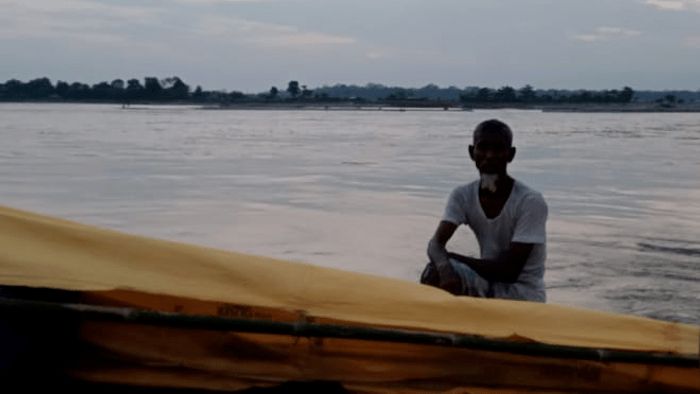Assam: Beyond floods, there's heavy soil erosion in Baksa

- Jun 08, 2020,
- Updated Jun 08, 2020, 12:48 AM IST
The “season of annual” floods came over incessant rainfalls with the onset of monsoon in Assam. This has already affected major districts of the state: Lakhimpur, Darrang, Dhemaji, Dibrugarh, Goalpara, Nalbari, Tinsukia, West Karbi Anglong, Hojai, Nagaon, Baksa among others.
As per the Assam State Disaster Management Authority (ASDMA) report, more than 200 villages were affected each day for the first week. Thousands of livestock, which is a part of the agro-economy has perished. Farmlands were also affected by the flash floods which has led to heavy losses in the region.
Beyond the flood waters
With lakhs of people affected every year, Assam's flood situation is well known although it gets less traction in the mainstream. Moreover, another facet of the problem is that soil erosion has been equally brutal towards the people.
As per the local fact-findings by our source, soil erosion has been rampant in Baksa district of Assam. Here, the river Beki works like a paradox: one it supplies water to agriculture lands, supplements the fishing livelihood and maintains the local ecosystem. On the contrary, it ensues erosion that affects the local population by large.
How did it begin?
Our source conversed with an elderly of the area, who recalls the inception of the testing times. Earlier, the part of the domain was connected to the Beki river of the Bansbari range of the Manas National Park. In 2004, the river Beki changed its course that initiated a sense of an ending which still pervades their daily lives.
Also read: Assam: Central team to conduct survey in landslide-hit Barak Valley
In the subsequent years, especially in 2007, regular floods added to the start of soil erosion. It has increased to an extent, that even schools have been washed away. Another dimension of the problem has been in 2014, about 22 people were killed and the subsequent ethnic violence that tore the social fabric of Bodoland.
Thus, the people here are facing multi-dimensional marginalisation, which includes - political, social, environmental and economic.
Course of action
The issue revolves around an important aspect: to broaden our understanding of floods. Right now, the state is mostly associated with damage control efforts which are lauded this year because of their swift response. However, in the macro framework of policy, they have missed out flood induced erosion and landslides on a preventive basis. In Barak Valley itself, incessant rainfall-induced landslides have killed at least 21 people.
Going forward
The rivers of the northeast are volatile and usually change course as opposed to the western rivers of the countries. This displaces hoards of communities and affects their occupations. Along with that, it brings other geological calamities. The govt must formulate a northeast based flood policy that looks after the solutions in tune with the geography of the terrain. Otherwise, the status quo of the “season of annual” Assam floods will remain in oblivion.
-with special inputs from Kallol Deka
Readers like you make Inside Northeast’s work possible.
To support our brand of fearless and investigative journalism, support us HERE.
Download:
The Inside Northeast app HERE for News, Views, and Reviews from Northeast India.
Do keep following us for news on-the-go. We deliver the Northeast.